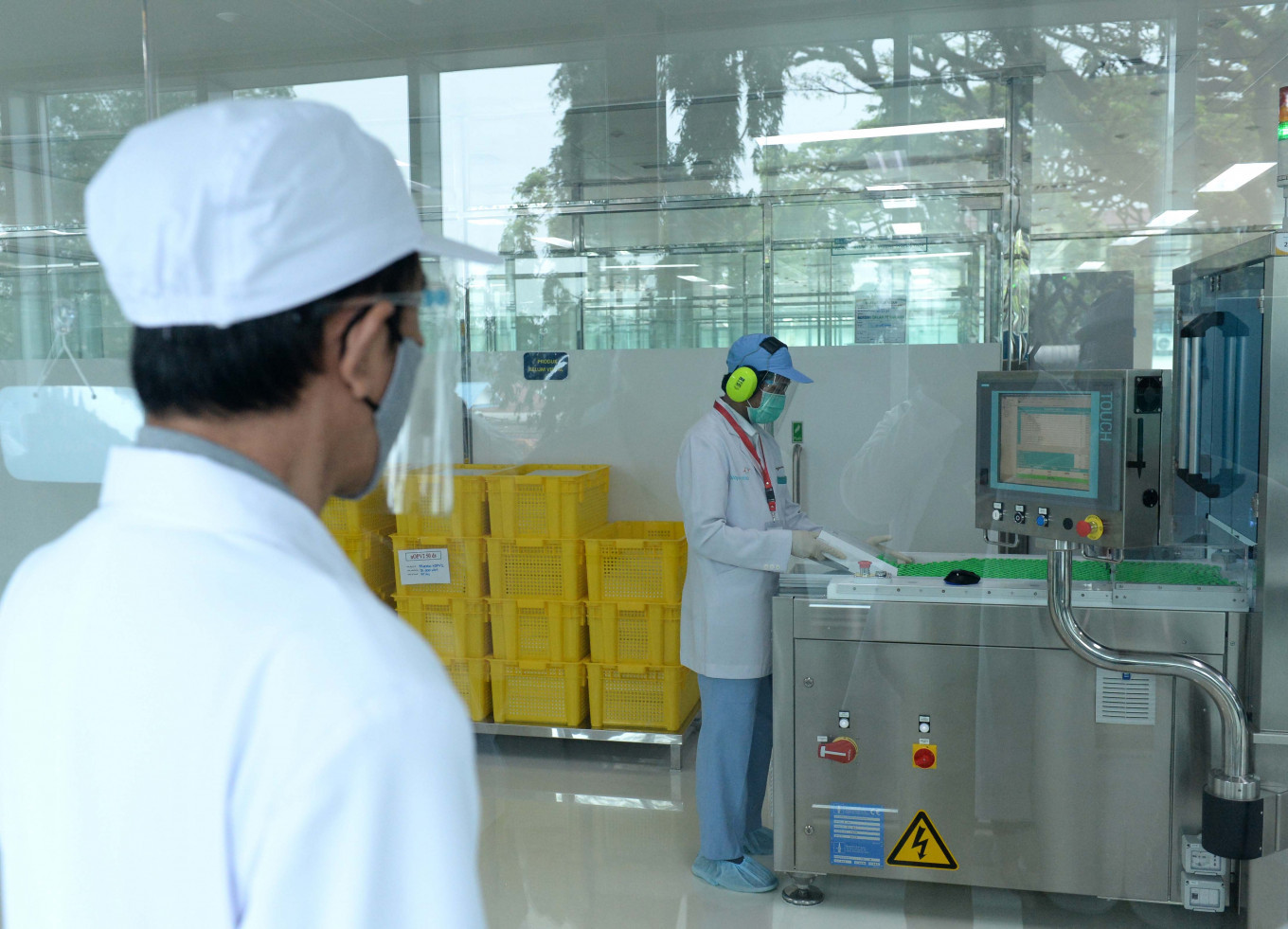Popular Reads
Top Results
Can't find what you're looking for?
View all search resultsPopular Reads
Top Results
Can't find what you're looking for?
View all search resultsVaccines do not guarantee end of COVID-19 pandemic: Task force
Vaccines are to only serve as a form of medical intervention to boost people’s immunity during the pandemic. People still need to comply with health protocols, which include handwashing, mask-wearing and physical distancing.
Change text size
Gift Premium Articles
to Anyone
N
ational COVID-19 task force spokesman Wiku Adisasmito has said that having vaccines for the virus does not solely guarantee the end of the pandemic in the country.
“Vaccines are not the only reassurance for the country to eliminate the COVID-19 pandemic,” Wiku said in a virtual press conference in Jakarta on Thursday.
He went on to say that vaccines were to only serve as a form of medical intervention to boost people’s immunity during the pandemic.
Therefore, once the country had vaccines, people were expected to support the vaccination program by continuing to comply with handwashing, mask-wearing and physical distancing rules, he added.
The said three activities are believed to be effective in curbing the virus spread.
President Joko “Jokowi” Widodo signed the much-anticipated regulation on COVID-19 vaccines and vaccination on Monday. Presidential Regulation No. 99/2020 on vaccine procurement and vaccination to mitigate the COVID-19 pandemic came into effect on Tuesday.
In a separate event, another task force spokesperson, Reisa Broto Asmoro, said people needn't be worried about the possible side effects of the future vaccines.
Reisa referred to a certain belief surrounding vaccines causing autism.
“Let’s not be worried about illnesses that have nothing to do with immunization,” she added.
The aforementioned presidential regulation breaks down requirements for the procurement, implementation, funding and support and facilities from ministries, institutions and regional administrations concerning COVID-19 vaccination.
Read also: How to distribute vaccines is the big question
According to the regulation, frontline workers, from health workers and contact-tracing paramedics to military and law enforcement personnel, will be prioritized for vaccination. They number some 3.5 million people.
The second-priority group are religious and community leaders, local authorities at district, village, community and neighborhood units, who number more than 6 million individuals.
The third-priority group includes more than 4 million teachers at various levels of education. The fourth group is government officials and legislative council members, of which there are over 2 million.
The fifth group is members of the Healthcare and Social Security Agency (BPJS Kesehatan) whose fees are paid by the government. Their number exceeds 86 million individuals.
The last group of more than 57 million is the general public.
Indonesia has forged cooperation with several countries regarding the supply of potential vaccines.
Chinese biopharmaceutical company Sinovac Biotech partnered with Bio Farma to launch the late-stage human trials of a candidate vaccine in Bandung, West Java.
The trial involved some 1,620 volunteers since August. Kimia Farma struck a deal with Group 42 (G42) Healthcare, an artificial intelligence company in the United Arab Emirates, to develop a potential vaccine.
The Research and Technology Ministry is also leading a national consortium, comprising research bodies and universities, to develop the Merah Putih vaccine.
In addition, the Health Ministry signed an agreement with UNICEF to procure COVID-19 vaccine through COVAX, a global vaccine allocation plan co-led by the World Health Organization aiming for even distribution of the vaccine. (nkn)
Editor’s note: This article is part of a public campaign by the COVID-19 task force to raise people’s awareness about the pandemic.










